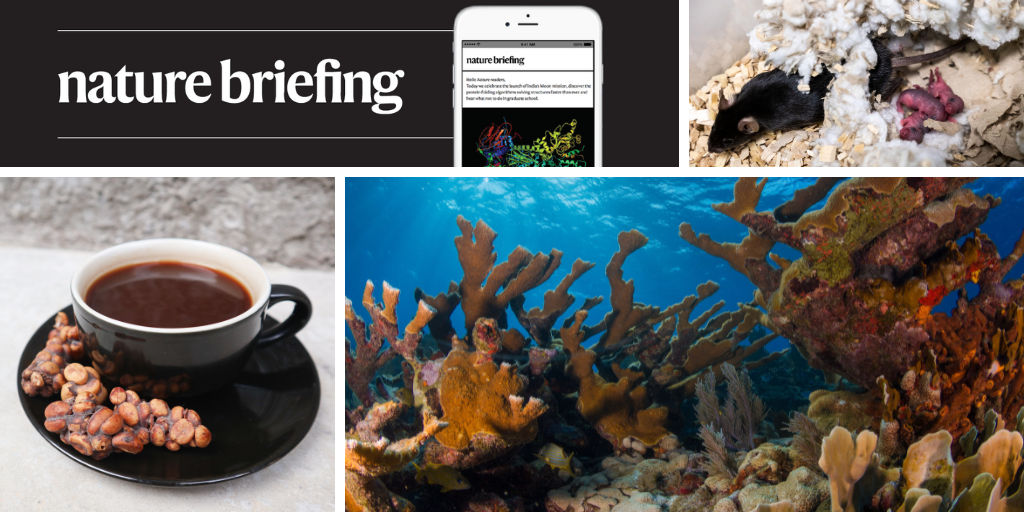
"Two fatty acids often used in dairy products might help to give civet coffee its distinctive flavour. The unusual brew, otherwise known as Kopi Luwak, is made by roasting coffee beans that have been eaten and excreted by Asian palm civets ( Paradoxurus hermaphroditus). Researchers found that these fatty acids appeared at a higher concentration in beans taken from civet faeces than in those taken directly from the plant. This difference is probably caused by fermentation in the civet guts, with Gluconobacter gut bacteria and their enzymes playing a key part, the team says."
"A few elkhorn coral ( Acropora palmata) and staghorn coral ( Acropora cervicornis) survive in tanks and scattered in the wild, but a new study suggests that so few remain they can no longer act as the primary reef builders in the area. Scientists say that conservation efforts that focused primarily on re-seeding the corals from lab-grown nubs must now shift towards trying to breed or develop heat-resistant strains of Acropora corals from the few that survived, or to other, more heat-tolerant species altogether."
Two fatty acids commonly used in dairy products appear at higher concentrations in coffee beans excreted by Asian palm civets, likely produced by fermentation in civet guts driven by Gluconobacter bacteria and their enzymes. The elevated fatty acids likely contribute to Kopi Luwak's distinctive flavour. Two Acropora corals that built Florida's 560-kilometre reef for more than 10,000 years are now functionally extinct following the record-breaking 2023 heatwave. Only a few elkhorn and staghorn corals survive in tanks or scattered in the wild and cannot fulfill reef-building roles. Conservation must shift from re-seeding lab-grown nubs toward developing heat-resistant strains or focusing on more heat-tolerant species, while addressing greenhouse gas emissions as the underlying cause.
Read at Nature
Unable to calculate read time
Collection
[
|
...
]